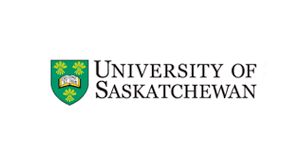University of Saskatchewan research builds ways of healing and justice
Dr. Julie Kaye (PhD), associate professor of sociology in USask’s College of Arts and Science, and co-directors Dr. Hadley Friedland (PhD), Dr. Val Napoleon (PhD), and Professor Patricia Barkaskas (JD), have been awarded a $700,000 grant by the Social Sciences and Humanities Research Council of Canada and Women and Gender Equality Canada.
The project is called Building Indigenous Legal Lodges: Restoring Access to Justice and Preventing Violence Against Indigenous Women, Girls, Trans, and Two-Spirit+. It is a partnership that includes researchers from USask, the University of Alberta, and the University of Victoria, and collaborators from Standing Together, a community group working towards multi-generational healing and transforming systems rooted in violence against Indigenous women and girls, YWCA Edmonton, the University of Windsor, and the University of Toronto.
“I think the heart of the project starts with how do we improve access to justice, safety and healing by and with Indigenous women and girls who continue to face relentless violence within the context of settler colonialism in Canada?” said Kaye. “Our goal is to honour personhood. We recognize the harms of the Canadian legal system, but moreso the potential and reality of Indigenous laws and known ways of creating safety and achieving justice that operated for thousands of years on these lands.”
The project places strong community practices, such as the work of Standing Together, at the centre of its efforts. Standing Together is a collective of survivors of gender-based violence, sexual abuse, relations of missing and murdered Indigenous women, survivors of residential schooling and the Sixties Scoop. Its work is focused on complex multi-generational healing.
Co-founder of Standing Together, Lorette Goulet, looks forward to focusing on the healing aspect of this project, along with Kaye and fellow co-founder Prairie Adaoui-Dustyhorn. The group has already held several healing events rooted in ceremony, with survivors of violence and relations of missing and murdered Indigenous women.
“We found that the events we did really impacted the families, and so we know that our people heal by their connection to the land, by their connection to culture and ceremony,” said Goulet.
The project will continue running women’s sharing and healing circles and bring women and two-spirit+ persons together from multiple communities.
“It’s an opportunity for women to gather and learn from each other and find those opportunities to heal and be on the land through sweat lodge ceremonies, and other ceremonies,” said Goulet.
She said there needs to be a different approach to legal matters.
“So many horrible things happen to us in the courts. With this project we’re hoping to try and make some change, so that this doesn’t continue to happen.”
“I’ve seen other cultures want to know more about Indigenous people. They want to walk with us, and that’s wonderful, because we are all part of that medicine wheel,” said Goulet. “It’s wonderful to have the support of some very hard-working legal minds and the other people who are supporting everyone affected by this violence. I think this project is going to go a long way to helping us create change.”
Friedland said Indigenous legal lodges are intentionally safer spaces where people with lived experience of colonial-gendered violence can collaboratively draw on their own wisdom and experiences, as well as Indigenous legal resources, to identify pathways toward greater safety, justice, and healing.
“Community-led research is essential to ensure Indigenous legal research is responsive to community goals and draws on the strengths and knowledges in community,” said Friedland. “Everyone brings their own gifts.”
Kaye agrees that the creation of safer spaces to talk and heal is a key to making significant changes in the system.
“When we’re talking about healing, we’re talking about complex, multi- and inter-generational healing work that is rooted in ceremony and land-based – and sometimes art-based as well – ways of creating that space,” she said. “And part of doing that is really reducing so many of the barriers that we’re aware of around being able to report violence, or having a safe space to talk about violence experienced, as well as really trying to effectively enact methods of justice and healing that don’t perpetuate the ongoing violence experience by and from the legal system.”
“We should all be aware at this point that the rights of Indigenous people, particularly within the Canadian legal system, continue to be violated.”
The project is structured over four years.
In the first year, the participants will put together methods for analyzing and developing Indigenous law alongside the work of the healing gatherings and the work of creating safer spaces for survivors and relations.
They will analyze the resources that exist within the communities they will be working with, and in subsequent years will be holding the Indigenous legal lodges and working with communities and those who want to be a part of bringing their knowledge into the project, said Kaye.
The project will ultimately be active in Alberta, Saskatchewan, British Columbia, Yukon, and Northwest Territories, with legal lodges in both urban and rural locations.
Goulet said it is a daunting undertaking but is optimistic for what this project can do for the future.
“It’s a big mountain we have to climb. However, there has to be a starting point. And from that starting point, we can create all kinds of new ways to look at what is there and to assist in overcoming those difficulties. Who knows how far we can go?”

